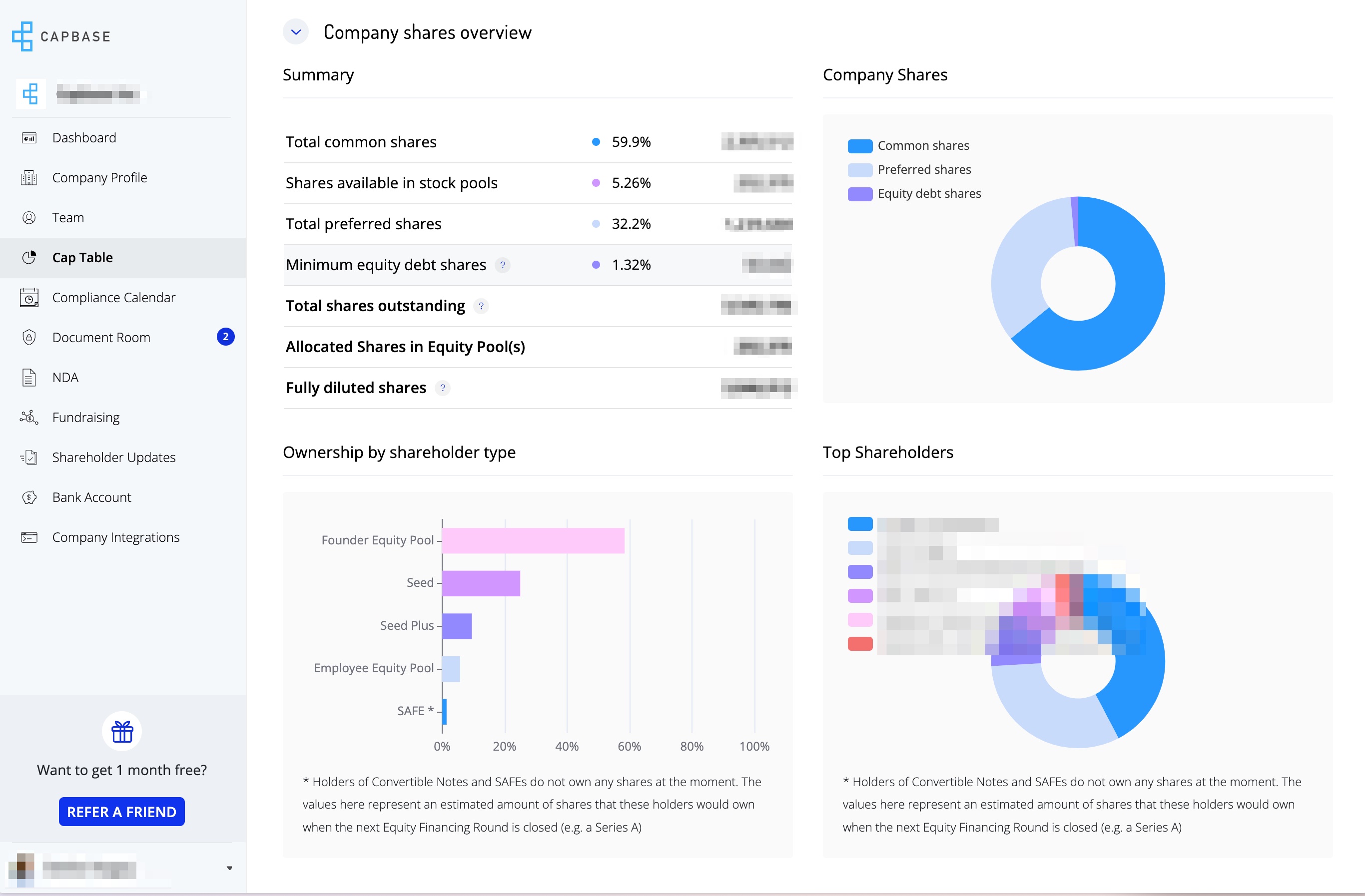Remote payroll startup Deel has acquired fintech Capbase for an undisclosed amount in a cash and stock deal, the companies have told TechCrunch exclusively.
As its name suggests, San Francisco-based Capbase claims it can update a company’s cap table in real time as it issues shares, signs contracts and raise money from investors. It then uses that data to build API integrations that can be used to set up bank accounts, payroll and business insurance. Greg Miaskiewicz and Stefan Nagey founded the company in 2018, and raised a total of about $6 million in venture capital from firms such as Better Tomorrow Ventures, Clocktower Technology Ventures, Great Oaks Venture Capital, Village Global as well as a number of angel investors.
“We tried to make it simpler to start a company, raise money and issue equity,” CEO Miaskiewicz told TechCrunch in an interview. Capbase ran a private beta until April 2021, and saw its customer base grow “from 10 to more than 500 in less than 18 months,” he said, though declining to reveal hard revenue figures.
Alex Bouaziz and Shuo Wang started remote-first, San Francisco-based Deel in 2019 with the mission of allowing businesses to hire employees and contractors in other countries “in less than five minutes.” Deel also says that it gives companies the ability to pay teams in over 150 currencies with “just a click.” The company raised nearly $680 million in total funding, was last valued at $12 billion and boasted it had crossed the $100 million in ARR (annual recurring revenue) threshold in March of 2022. (The company declines to reveal current numbers saying only that it continues to grow its ARR month over month “at a very strong clip.”)
Over the years, Deel has evolved its model, adding more features and acquiring other startups to boost its offerings, including equity-related services to clients in a consultative capacity. For example, it advises them on how to manage their taxable events on Employer of Record employee and contractor equity, in addition to handling payroll on those events. With its acquisition of Capbase, Deel plans to pair those services with a new product dedicated to equity management and issuance.
In an interview, Bouaziz said that Deel’s customers have struggled around “where and how to start approaching equity grants,” with questions such as how to grant employees and contractors equity in countries where they don’t have entities and what they need to do to comply with local laws.
Interestingly, Capbase was one of Deel’s earliest customers and Bouaziz says he was always “appreciative” of Miaskiewicz’s thinking around compliance.
So, as questions continued to come up from customers, like how to grant equity to people in other countries, especially in light of different labor laws everywhere, Deel began to search for a solution. In fact, it was a problem it had to solve for itself, especially considering that the company provides “the same equity to people regardless of where they are.”
“We looked at U.S. compliance and realized it was a very, very hard thing to do,” Bouaziz told TechCrunch. “Equity is such an important part of companies, so enabling other companies to grant it across geographies and at scale felt like something we should tackle.”
Instead of “just doing it from scratch,” Deel opted to work with Capbase.
Put simply, in acquiring Capbase, Deel hopes to ease the complexities that come with setting up companies and growing them. It was drawn to the fact that Capbase works to help companies with incorporation and fundraising in their early days as well as with compliance filings and granting equity as they mature, according to Bouaziz.
“They offer technology and compliance expertise to help hundreds of businesses incorporate seamlessly in the U.S., set up bank accounts and boards, manage cap tables, and, of course, grant equity,” he added. “All of these things complement our efforts around helping companies expand more easily, all in one place, compliantly.”

Image Credits: Capbase
Notably, Deel believes the addition of Capbase will help it “do more in the U.S. to support startups and help companies go global.” This will no doubt allow Deel to better compete with others in the space.
For example, last October, workforce management platform Rippling revealed a new globally payroll product that its CEO Parker Conrad wasn’t shy about admitting would directly compete with Deel. At that time, Conrad told TechCrunch the new offering would give Rippling’s U.S.-based clients a way to pay workers all over the world — whether they be full-time or contract — more “seamlessly.”
One company that Deel is not trying to compete against, though, is Carta.
“Capbase’s initial product is similar to Carta and Stripe Atlas,” Bouaziz said. “We’re not doubling down on that product. I think cap table management is important but a lot of companies have built a product around it and reinventing the wheel is not something we really like to do. Going into this market would be reinventing the wheel.”
“We really want to build a product solving global equity for the employer of record model for employees around the world,” he added. “We want to take that internal knowledge that was built in the U.S. and productize it globally.”
For Capbase, the offer to get acquired in an extremely challenging macro environment was more attractive than “continuing down the path of fundraising in a rocky economic climate,” admits Miaskiewicz.
The startup’s 20 employees are all joining Deel.
Miaskiewicz believes that with the two companies joining forces, Deel will emerge as an even stronger company.
“If you’re trying to sell services to startups or companies that will become the next big tech companies, you want to establish that relationship and offer them services as early in the lifecycle as possible because then you can build and offer them more and more services as they scale, so that you can monetize that relationship and build the customer lifetime value,” he told TechCrunch.
Meanwhile, Deel anticipates that it will have a “pretty solid working product” available to customers — which include companies such as Nike, Cloudflare, Shopify and Subway — by early to mid-February.
“Obviously with global compliance, we’ll be fine-tuning over time as the product gets more and more complicated and more and more tailored to the local jurisdictions and local laws,” Bouaziz said.
Equity management is clearly a hot area. On January 10, investment giant Fidelity announced that it had acquired Shoobx, a venture-backed fintech startup, for an undisclosed amount. Shoobx is a provider of automated equity management operations and financing software to private companies “at all growth stages,” up to and including an initial public offering. Services it offers include helping companies send offer letters, grant equity to new employees, manage their cap tables and get a 409A valuation report, among other things.
Deel enters equity management space with acquisition of Capbase by Mary Ann Azevedo originally published on TechCrunch
DUOS





